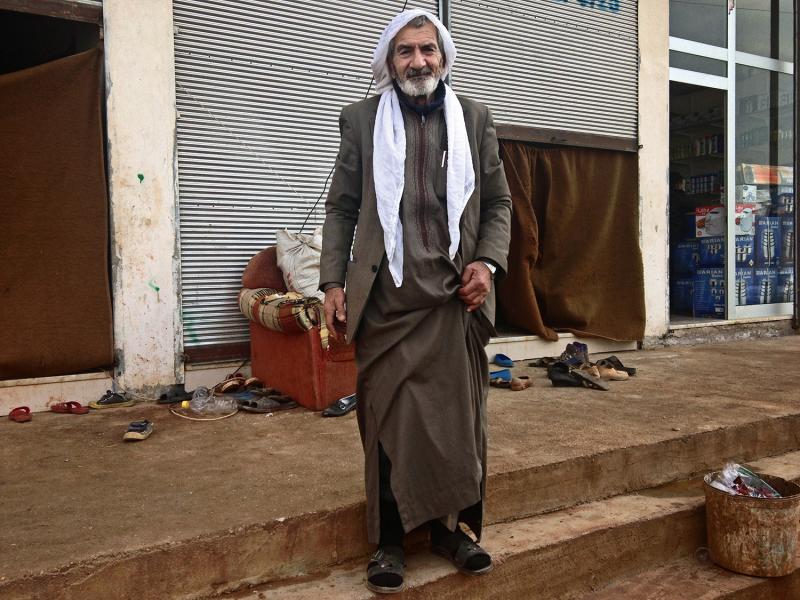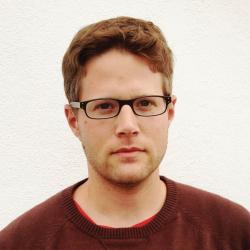
In January 2013, Nader Shaleesh decided it was time to leave his home for safer ground. A seventy-five-year-old farmer from the town of Kafarnabodah, in Syria’s Idlib province, Shaleesh had done everything in his power to remain close to home as the Syrian civil war raged around him. The conflict had already cost him a son, who was killed by a mortar in front of his home in Damascus the year before. Now, the Syrian army was moving in on Kafarnabodah, bringing with it artillery fire and tank shells that crashed down around the town, terrifying Shaleesh’s young grandchildren as they tried to sleep. Shaleesh worried about the little ones, especially the girls, and what might happen to them if they fell into the hands of the regime or, worse, one of the criminal gangs that had proliferated in the Syrian countryside. “The plan was to keep my honor—and keep my granddaughters safe from danger,” he said.
On January 25, Shaleesh set out from home, his grandchildren and most of his life’s possessions in tow, and made course for a town in the north, near the border of Turkey, where he’d heard there was a makeshift refugee camp and the possibility of safety. It was called Atmeh, and to Shaleesh and his family, like the thousands of sudden evacuees around them, it sounded like a haven.
The camp was a disappointment—disorganized, dirty, unsafe—and by the fall, Shaleesh would have relocated again to Reyhanli, a Turkish town across the border. But the months he spent in Atmeh, waiting along its muddy paths under a sparse grove of olive trees, would have an unanticipated effect on the elderly farmer: They turned him into the poet laureate of Syria’s refugees, and possibly of the uprising itself.
“When we left our home, we left unconsciously,” Shaleesh said when he told me his story in early 2014. We were sitting in his new home in Reyhanli, an empty storefront situated next to a shop selling cheap housewares on a dingy, dirt-lined street at the edge of town. He paid $150 a month in rent, and he cribbed electricity from the street using a long, white extension cord. When people set out from their homes, he said, “If you were heading west, you were so disoriented you didn’t even realize you were heading west. I’ll never forget those days. There was so much fear.”
Shaleesh is pencil thin, with a tuft of white beard under his chin and a dignified manner that now and then yields to reveal a hint of youthful playfulness. He was dressed in a brown robe topped with a light-green sportcoat, and he would fill pauses in the conversation by laboriously rolling a cigarette with loose tobacco that he carried in a metal tin. He slid the finished product into an elegant cane cigarette holder before lighting it.
Before the war, he told me, he had never once written a word of prose, poetry or otherwise. But as the sorrows of the war mounted, and especially during the dark, static days at Atmeh, the verse began to flow. “Something inside me exploded,” he said. “From the huge amount of pain, the misery of the experience, from the absence of explanation,” he said. “I remember, I asked History, have you ever seen anything like this before? But History was silent.”
Shaleesh often speaks this way, his locution flecked with lyrical phrasing and metaphor. When he wants to emphasize a point, his normal speaking cadence, a gentle, murmuring flow, becomes punctuated like a classical sonata. (Of the mosquitos that swarmed around the downtrodden refugees in Atmeh in the summer, he said, “They would not leave even an inch of your face alone without kissing it.”) The effect was that Shaleesh seemed to have been crafting poetry all his life and just never bothered to write it down.
The poems that emerged at Atmeh were about everyday life and the heroics of the revolutionaries; they spoke of longing for home and of lingering doubts about the price of freedom. In one, Shaleesh delivers stern messages to the leaders of Iran, who he blamed for prolonging the suffering of the war. In another, he castigated the managers of Atmeh camp for their inability to offer protections or deliver basic necessities. He called that one “A Scream in Four Directions,” and as we sat sipping tea in his home, a bitter chill drifting in from the bare store’s parted front grates, he read from it, his voice dripping with anguish:
This camp is an open square, unprotected from the evil of duplicitous spies.
It is a forest lacking those with conviction, but full of snakes, foxes and antelopes.
And perhaps the generous ones came to us quickly, and sadness shook their
tender hearts.
You shall see a fox crouching in their path, hands outstretched like buckets.
He kneels before their legs, kissing their feet, and the charitable ones’ hearts are
like the wind.
They are pouring heavy gifts into his pocket. He has forgotten conviction and law
and brotherhood.
The hungry starve silently in sadness, and the efforts of the open-handed are
for naught.
For more from Joshua Hersh on Syria’s refugee crisis, read The Lessons of Atmeh, which appears in our Fall 2014 issue.







